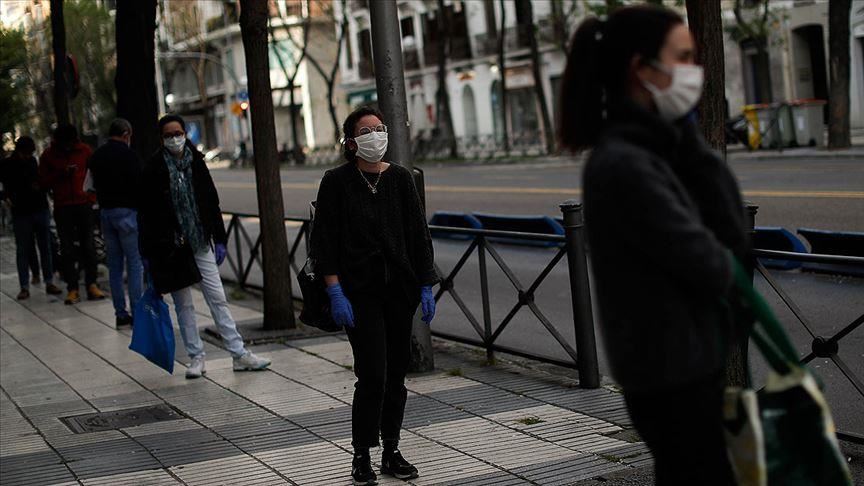Coronavirus
Coronavirus Lingers in Air of Crowded Spaces, New Study Finds

The new coronavirus appears to linger in the air in crowded spaces or rooms that lack ventilation, researchers found in a study that buttresses the notion that Covid-19 can spread through tiny airborne particles known as aerosols.
At two hospitals in Wuhan, China, researchers found bits of the virus’s genetic material floating in the air of hospital toilets, an indoor space housing large crowds, and rooms where medical staff take off protective gear. The study, published Monday in the journal Nature Research, didn’t seek to establish whether the airborne particles could cause infections.
The question of how readily the new virus can spread through the air has been a matter of debate. The World Health Organization has said the risk is limited to specific circumstances, pointing to an analysis of more than 75,000 cases in China in which no airborne transmission was reported.
But as the virus fans across the globe and infections near 3 million, scientists are trying to understand exactly how contamination occurs.
People produce two types of droplets when they breathe, cough or talk. Larger ones drop to the ground before they evaporate, causing contamination mostly via the objects on which they settle. Smaller ones — those that make up aerosols — can hang in the air for hours.
The researchers, led by Ke Lan of Wuhan University, set up so-called aerosol traps in and around two hospitals in the city that was home to the pandemic’s first steps.
They found few aerosols in patient wards, supermarkets and residential buildings. Many more were detected in toilets and two areas that had large crowds passing through, including an indoor space near one of the hospitals.
Especially high concentrations appeared in the rooms where medical staff doff protective equipment, which may suggest that particles contaminating their gear became airborne again when masks, gloves and gowns are removed.
The findings highlight the importance of ventilation, limiting crowds and careful sanitation efforts, the researchers said.
Kenya Insights allows guest blogging, if you want to be published on Kenya’s most authoritative and accurate blog, have an expose, news TIPS, story angles, human interest stories, drop us an email on [email protected] or via Telegram
-

 Grapevine2 weeks ago
Grapevine2 weeks agoAlleged Male Lover Claims His Life Is in Danger, Leaks Screenshots and Private Videos Linking SportPesa CEO Ronald Karauri
-

 Grapevine1 week ago
Grapevine1 week agoRussian Man’s Secret Sex Recordings Ignite Fury as Questions Mount Over Consent and Easy Pick-Ups in Nairobi
-

 Investigations5 days ago
Investigations5 days agoMulti-Million Dollar Fraud: Three Kenyans Face US Extradition in Massive Cybercrime Conspiracy
-

 News3 days ago
News3 days agoTHE FIRM IN THE DOCK: How Kaplan and Stratton Became the Most Scrutinised Law Firm in Kenya
-

 Economy4 days ago
Economy4 days agoIran Demands Arrest, Prosecution Of Kenya’s Cup of Joe Director Director Over Sh2.6 Billion Tea Fraud
-

 Business5 days ago
Business5 days agoA Farm in Kenya’s Rift Valley Ignites a National Reckoning With Israeli Investment
-

 Business2 weeks ago
Business2 weeks agoM-Gas Pursues Carbon Credit Billions as Koko Networks Wreckage Exposes Market’s Dark Underbelly
-

 Africa1 week ago
Africa1 week agoFBI Investigates Congresswoman Ilhan Omar’s Husband’s Sh3.8 Billion Businesses in Kenya, Somalia and Dubai















